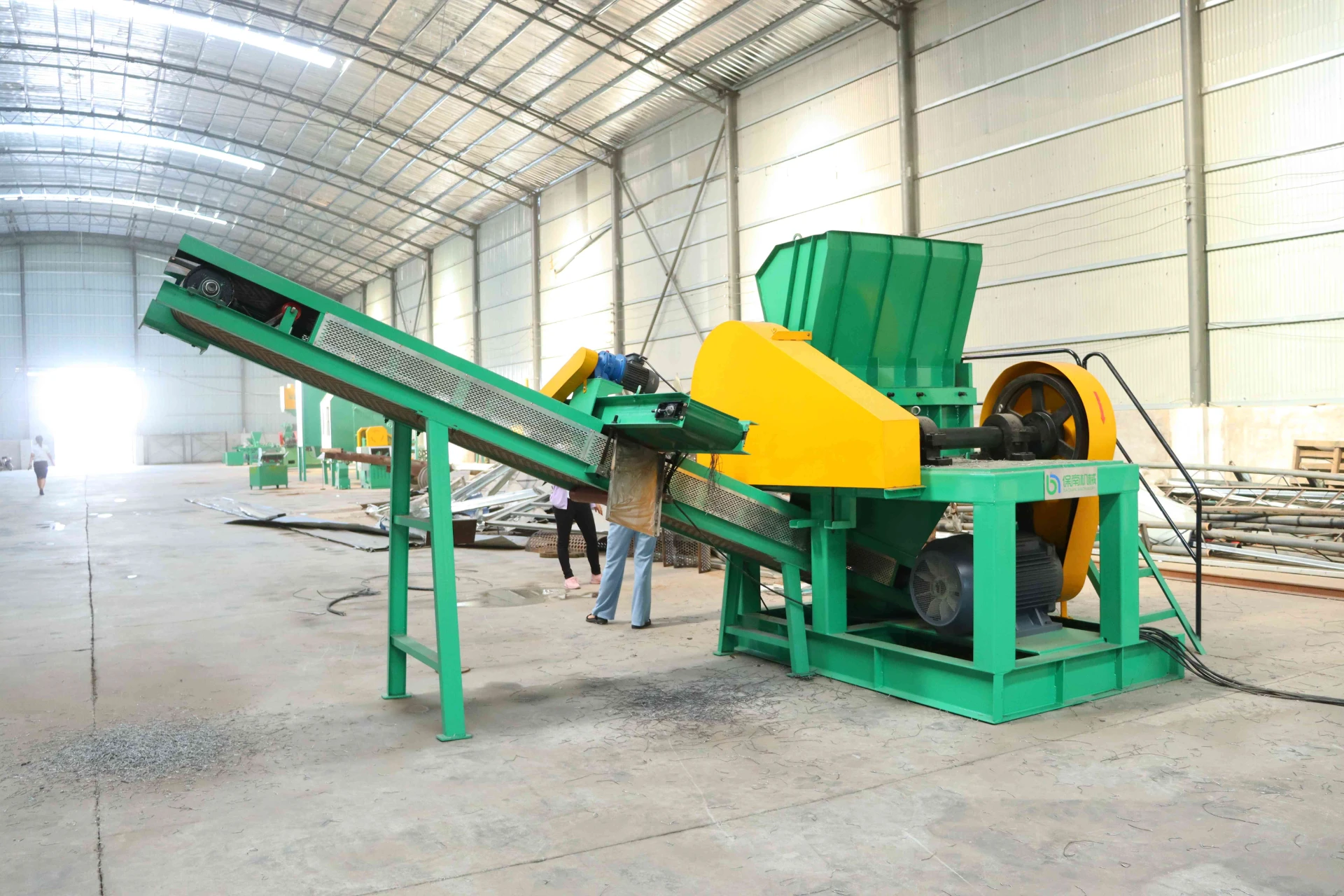

Nov . 01, 2024 14:31 Back to list
Understanding Single Shaft Shredders An Essential Tool for Waste Management
Single shaft shredders are becoming increasingly critical in the realm of waste management and recycling industries. These machines are designed to process a variety of materials, transforming them into smaller, manageable pieces. With their versatility and efficiency, single shaft shredders have gained a reputation as a reliable solution for tackling waste, making them an essential tool for manufacturers, recyclers, and waste management facilities.
How Single Shaft Shredders Work
The working principle of single shaft shredders revolves around a single rotating shaft fitted with sharp, staggered blades. As materials are fed into the shredder, the blades rotate at high speeds, creating shear and tearing forces that break down the material into smaller particles. The size of the output material can be adjusted by changing the screen mesh size installed at the discharge area, providing operators with flexibility to meet specific recycling requirements.
This design not only allows for the processing of various materials such as plastics, rubber, wood, and metal, but it also ensures a uniform particle size, which is vital for further processing in recycling operations. The single shaft configuration simplifies the shredding process by effectively managing the material flow, making it easier to handle large volumes efficiently.
Applications of Single Shaft Shredders
Single shaft shredders are utilized across various industries. In the recycling sector, they play a crucial role in processing plastic waste, cardboard, and other recyclable materials to prepare them for reentry into the manufacturing cycle. In the wood industry, they are used to shred wooden waste, including pallets and timber scraps, which can then be converted into mulch or biofuel.

Moreover, single shaft shredders find applications in the production of alternative fuels. By shredding waste materials like textiles or rubber tires, the resultant output can be used as a feedstock for energy generation. Their ability to handle multiple materials makes them an excellent choice for facilities looking to maximize resource recovery rates.
Benefits of Single Shaft Shredders
One of the primary advantages of single shaft shredders is their efficiency in size reduction while minimizing noise and dust emissions. Modern shredders are equipped with advanced noise dampening technologies and can be operated under strict environmental regulations. Additionally, these machines often have low operational costs, making them an economically viable option for businesses.
Another key benefit lies in their ease of maintenance. Single shaft shredders are designed with user-friendly features that allow for quick access to the cutting chamber for cleaning and maintenance, ensuring optimum performance with minimal downtime.
Conclusion
In conclusion, single shaft shredders are an indispensable asset in the waste management and recycling landscape. Their robust construction, versatility in handling different materials, and efficient operation make them a preferred choice for industries aiming to improve their waste processing systems. As the demand for sustainable practices and waste reduction strategies continues to grow, the role of single shaft shredders will undoubtedly expand, driving innovation and efficiency in resource recovery and recycling efforts. Adopting such technology not only aids in reducing environmental impact but also contributes significantly to a circular economy.
Latest news
Troubleshooting Common Eddy Separator Problems
NewsJul.04,2025
The Role of Metal Recycling Plants in Circular Economy
NewsJul.04,2025
The Impact of Recycling Line Pickers on Waste Management Costs
NewsJul.04,2025
Safety Features Every Metal Shredder Should Have
NewsJul.04,2025
How Industrial Shredders Improve Waste Management Systems
NewsJul.04,2025
How Cable Granulators Contribute to Sustainable Recycling
NewsJul.04,2025